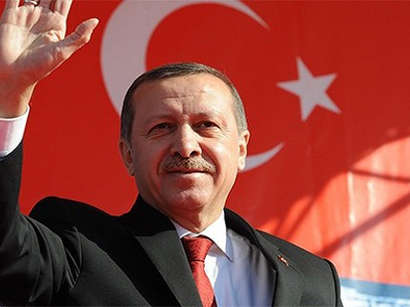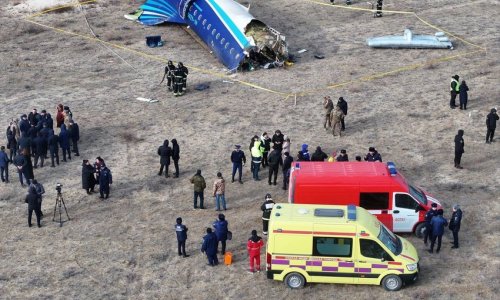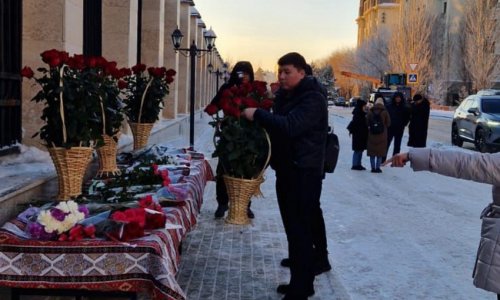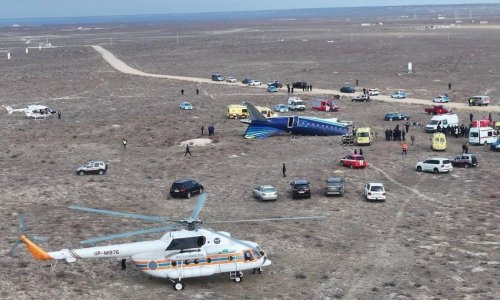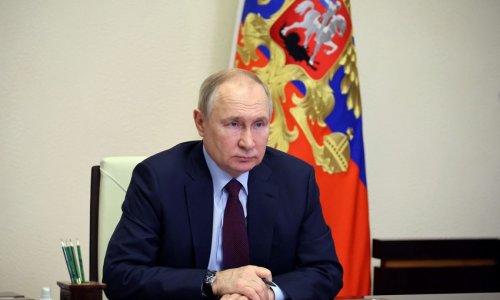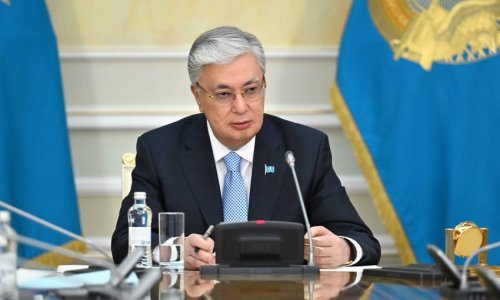The inauguration of the winner of the presidential election Recep Tayyip Erdogan was held 18 days after the first nation-wide election in the history of Turkey. One hundred days following the inauguration day will be marked December 6.
Despite the presence of strong individuals both in opposition and the government in the political history of Turkey after 2002, one should recognize that incumbent President Erdogan and Prime Minister Ahmet Davutoglu appointed August 21 are the most prominent figures among them.
Although Turkey is a parliamentary republic, President Erdogan's influence on the country is irrefutable. That is why, the opposition has mainly attacked Erdogan following the elections.
The past 100 days haven not been easy for President Erdogan.
The supporters of the Kurdistan Workers Party (PKK) terrorist organization and Democratic Unity Party have held mass protests in Turkey. As a reason, they cited the alleged mass murder of the Kurds from "Islamic State" terrorist group in Aynul Arab (Kobani) in Syria. During this period, this was one of the most important events.
As a result of the protests, a curfew was imposed in eight cities, and these events were called "the beginning of the "Kurdish Spring”” in the Western press.
In reality, the purpose of the protests was suspension of the process of "Democratic Solution of the Kurdish Question”, started in 2009 and intended to build peace with the Kurds. However, a lack of problems in Turkey itself wouldn’t suit the interests of forces that spread "democratic values" in the region.
In spite of the problems Erdogan has faced, a number of successful steps have also been implemented over the last 100 days, which most promenently include the release of Turkish diplomats in Mosul, who had been taken hostage by the "Islamic State”.
Undoubtedly, another one of his successes has been the deepening of relations between Moscow and Ankara. Although the main purpose of Putin's visit to Ankara was to attend a regular meeting of the Board of the Russian-Turkish cooperation at a high level, this visit became memorable as the one that changed the world energy policy. Along with the discussion of the numerous issues between the parties, the statements made by Putin in the capital of Turkey made international headlines.
The Russian president said his country has abandoned the implementation of South Stream gas pipeline project, and that the gas will be exported to Turkey at a 6 percent and then further at 15 percent discount.
The discount in gas prices is important for Turkey, even though this is a forced decision made by a Russia in the grips of Western sanctions.
Following the meeting, Putin said Russia intends to implement a new gas pipeline project jointly with Turkey. His remarks were presented in the Turkish media under the following headline: "Loss of significance of TANAP”.
However, Turkish Minister of Energy and Natural Resources Taner Yildiz said the negotiations on the construction of a new gas pipeline will not affect the implementation of TANAP.
The project of a new gas pipeline, which is planned to run though the Black Sea, is an imaginary project at present. Therefore, the significance of the TANAP project which is being jointly implemented by Azerbaijan and Turkey will increase. At the same time, there is no alternative to this project for the present time.
Another important project is the construction of Akkuyu nuclear power plant, which is presented as a "Marriage of the Century". This project is very important for energy dependent Turkey because some 43 percent of the gas imported from Russia goes to the production of electricity. Therefore, Ankara will continue to build nuclear power plants, which will be of vital importance for Turkey in the future.
Despite the sanctions imposed on Russia, the development of economic relations of Turkey, which is a NATO member, with Moscow is an indicator of its independent policies and Ankara’s significance in the region.
One more equally important issue lies in the consent the Iraqi government has granted to export the oil produced by the Kurdish administration through Turkey.
Given that the major countries have no stable policy, but have only stable interests, one can say that Ankara will from time to time change the policies associated with Russia, the EU, and the US.
This said, it is impossible to believe that Ankara will at any time change its policy in the South Caucasus, the Middle East and the Balkans.
The numerous political and economic changes taking place throughout the world have significantly increased Turkey’s role in the world.
Turkey, which is able to use all possibilities to the maximum extent possible, will not fail to take the advantage of this opportunity.
ANN.Az
Follow us !

